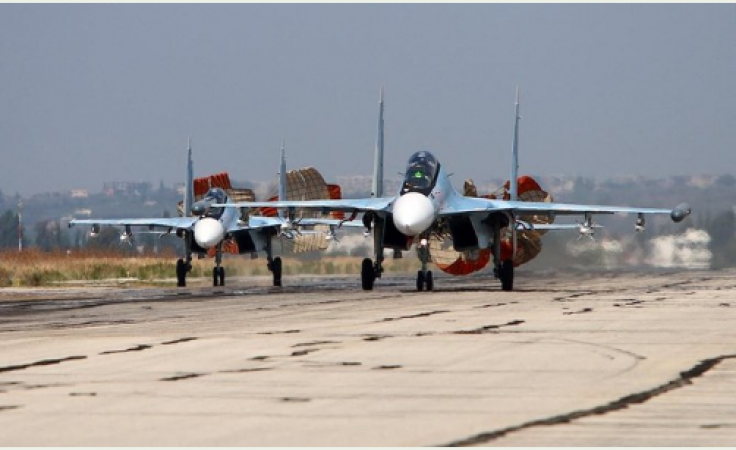
Burma: Myanmar has recently taken delivery of two Russian Su-30 fighter jets, marking a notable enhancement to its military capabilities. This development, however, has elicited both domestic and international scrutiny, given Myanmar's tumultuous political landscape, human rights concerns, and growing ties with Russia.
The Su-30, a versatile multirole fighter aircraft developed by Russia's Sukhoi Aviation Corporation, promises to play a pivotal role in Myanmar's air force modernization efforts.
Myanmar's receipt of two Su-30 fighter jets represents a crucial step in its endeavor to modernize its military assets. These twin-engine, two-seat aircraft are renowned for their versatility, designed for various missions such as air-to-air combat, air-to-ground strikes, and air defense.
Also Read: Mexico's Historic Path Towards Its First Female President
Delivered to the Myanmar Air Force base in Nay Pyi Taw, these Su-30s are expected to significantly bolster the country's aerial capabilities.
Myanmar's military has faced challenges in updating its aging fleet in recent years. The acquisition of the Su-30 fighter jets is part of a broader effort to modernize its military infrastructure. Beyond the Su-30s, the country has also ordered six Russian MiG-35 fighter jets, a more advanced addition to its air force.
This military modernization drive has raised concerns in the region and beyond. Myanmar's history of military coups and human rights abuses has fueled apprehensions about how these advanced weapons systems might be employed.
The purchase of the Su-30s underscores the deepening relationship between Myanmar and Russia. The two nations have been strengthening their ties in various domains, with Russia serving as a significant supplier of arms to Myanmar.
While Western countries, including the United States, have imposed sanctions on Myanmar in response to the military coup of February 2021, Russia has declined to join these sanctions, continuing its arms sales to the country.
Also Read: World Leaders At Official Dinner, Lunch: G20 Summit: 'All-Veg' Menu—Check List
This growing alliance has sparked debate over the implications of Myanmar's alignment with Russia. Some argue that it is indicative of a geopolitical shift, raising questions about the impact on regional dynamics and Myanmar's foreign policy.
Myanmar has faced increasing international scrutiny and condemnation for its human rights record. Since the military junta's takeover in February 2021, allegations of widespread human rights abuses, including extrajudicial killings, torture, and arbitrary detentions, have emerged. This has prompted the United States and other Western nations to impose sanctions on Myanmar's military leadership.
The delivery of advanced weaponry, such as the Su-30 fighter jets, to Myanmar raises ethical and political dilemmas for nations engaging with Myanmar. Russia's refusal to join international sanctions and its arms sales to Myanmar are viewed by many as complicity in the ongoing human rights violations.
The arrival of the Su-30 fighter jets in Myanmar comes at a critical juncture. As the country grapples with political instability and international isolation, the use of these advanced aircraft remains a subject of concern.
While they have the potential to enhance Myanmar's defensive capabilities, they also carry the risk of being deployed to suppress dissent or further intensify violence.
Myanmar's political and security situation is complex, and the introduction of advanced weaponry further complicates the landscape. It is essential for the international community to monitor closely how these assets are utilized to ensure they do not exacerbate the ongoing human rights crisis.
Myanmar's acquisition of Russian Su-30 fighter jets represents a significant development in its ongoing military modernization efforts. However, against the backdrop of the country's political turmoil, human rights concerns, and growing ties with Russia, this move raises critical questions about its implications for regional stability and global geopolitics.
Also Read: History of World First Aid Day
The international community must remain vigilant in monitoring the use of these advanced weapons in Myanmar and continue to address the ongoing human rights abuses.
The delivery of Su-30 fighter jets serves as a stark reminder of the complex web of alliances and interests shaping Myanmar's future, with consequences that extend far beyond its borders.